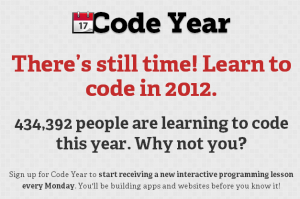 Times are a-changing. When I finished school in 1996, we still hand-wrote everything and the extent of our contact with computers at school was a 1 hour a week IT lesson. No one really used the internet, cell phones were only just starting to become popular and Google was just a research project.
Times are a-changing. When I finished school in 1996, we still hand-wrote everything and the extent of our contact with computers at school was a 1 hour a week IT lesson. No one really used the internet, cell phones were only just starting to become popular and Google was just a research project.
Nowadays, it’s so important for youth to have a good understanding of technology, as even the most basic jobs require some element of computer usage. Schools are now doing their best to prepare youth with computer skills, although this often simply involves learning Word, Excel, etc.
This week’s youth work session plan is aimed at giving them extra skills and – even better – is learning they may actually get excited about as it will help them build apps and websites.
Wait! Don’t stop reading! You may be wondering “How am I supposed to teach youth how to build apps and websites if I don’t know how to do it myself?” And the answer is – let someone else teach them.
This doesn’t have to mean bringing someone experienced in these areas to teach them these skills. There are a couple of new initiatives that teach anyone to code for free – all you need is computers for the youth to use and they’ll do the rest. If your youth work project has a limited number of computers available, these sessions may need to have restricted numbers of youth involved.
Code Year
Code Year is an initiative run by Codeacademy and gives free coding lessons each week. All you need to do when signing up is to give them an email address to send the lesson to – you could either have youth enter their own email address, or set up new ones for them using Gmail, Hotmail or any other free email provider.
Every Monday, Code Year will send an email with that week’s coding lesson. The email contains a link to that week’s lesson online – it starts with the basics that are nice and straightforward to learn, even if you’re a complete beginner. To make it even more fun, there are two parts to the lessons. The first part is based on learning code, while the second part teaches you how to built an app step-by-step.
Part of the genius of Code Year is that they’ve gamified learning how to code. The youth earn points for every task they complete successfully, as well as badges for different achievements (e.g. completing the first lesson, completing 10 exercises, completing 25 exercises, etc). This can greatly incentivize the youth into continuing the lessons as it gives them a far greater sense of achievement and provides them with the praise they need.
These lessons are currently set to go on for 52 weeks, so Code Year could basically be an entire year’s worth of youth work sessions, if building apps and websites is what you wanted to focus on with your young people. At the time of writing, the Code Year website advised that there are almost half a million people learning to code through Code Year, so there are many people getting a lot out of this.
Best of all – not only is Code Year free but it’s also available to anyone worldwide, provided they have a computer and email address. This kind of course could therefore help revolutionize tech learning in countries where youth would have no other way of gaining these skills.
Codecademy
As mentioned above, Code Year is run by Codecademy. If your youth enjoy the Code Year experience and are hungry for even more learning, they can skip ahead on the Codecademy website instead of waiting for the weekly emails.
These lessons are ultimately the same as the ones they’ll receive through Code Year, but it means they can complete far more exercises each time rather than having to wait a week for the next lesson. My understanding of Code Year though is that it gives a broader range of coding lessons each week, so would probably be more fun for youth than having them simply working through all the exercises on the Codecademy site.
Having said that, Codecademy enables young people to keep track of how well their friends are progressing (if they want to), adding a competitive element. They can also keep track of their own progress and see how quickly they’re moving through all the exercises – something else that will help keep them motivated.
If your young people keep at this, soon enough they’ll have learned the skills they need to start building apps and websites – skills that could be incredibly valuable in the modern world.
We have all kinds of other youth work session plan ideas in addition to this one to help you run programs for your young people.
Question: Have you had your youth use Code Year or Codecademy? If so, how did they find it? We’d really like to hear about your – and their – experiences in the comments below.
You can also connect with us by:
- Signing up to receive our posts via email
- Following us on Twitter
- Liking us on Facebook
- Signing up to our RSS feed